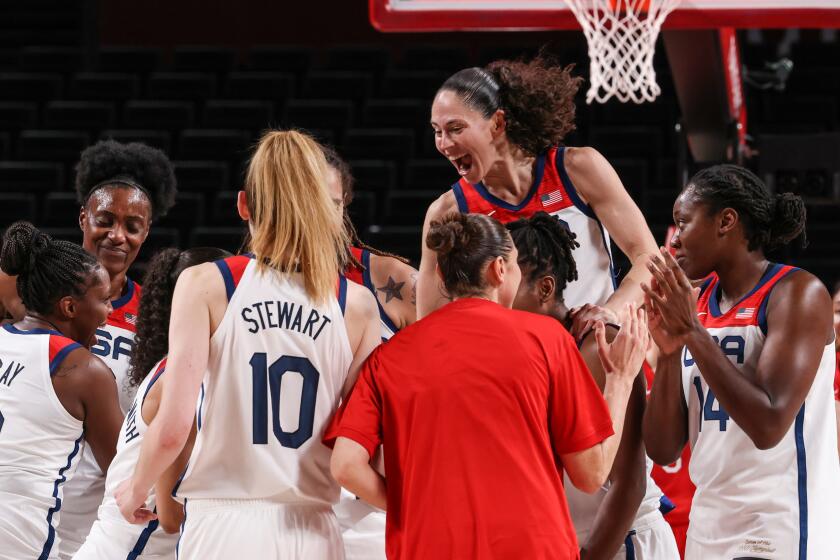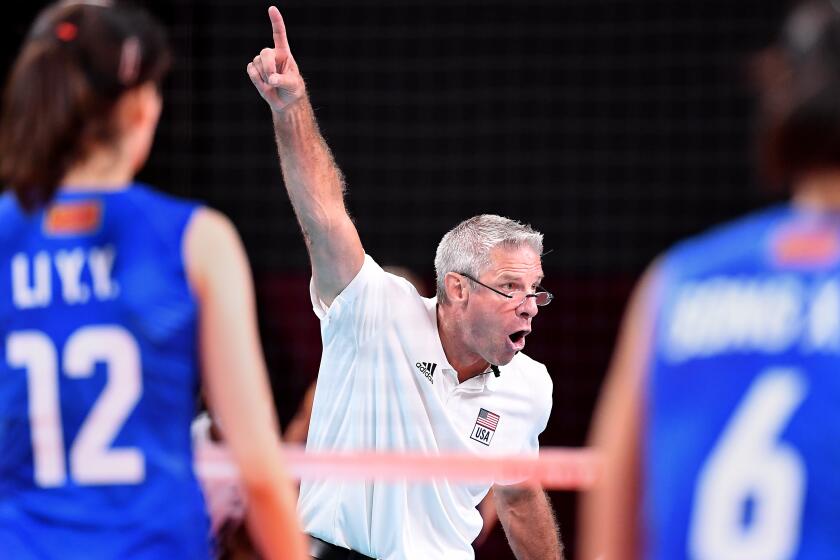U.S. women’s volleyball team beats Brazil to win its first Olympic gold medal
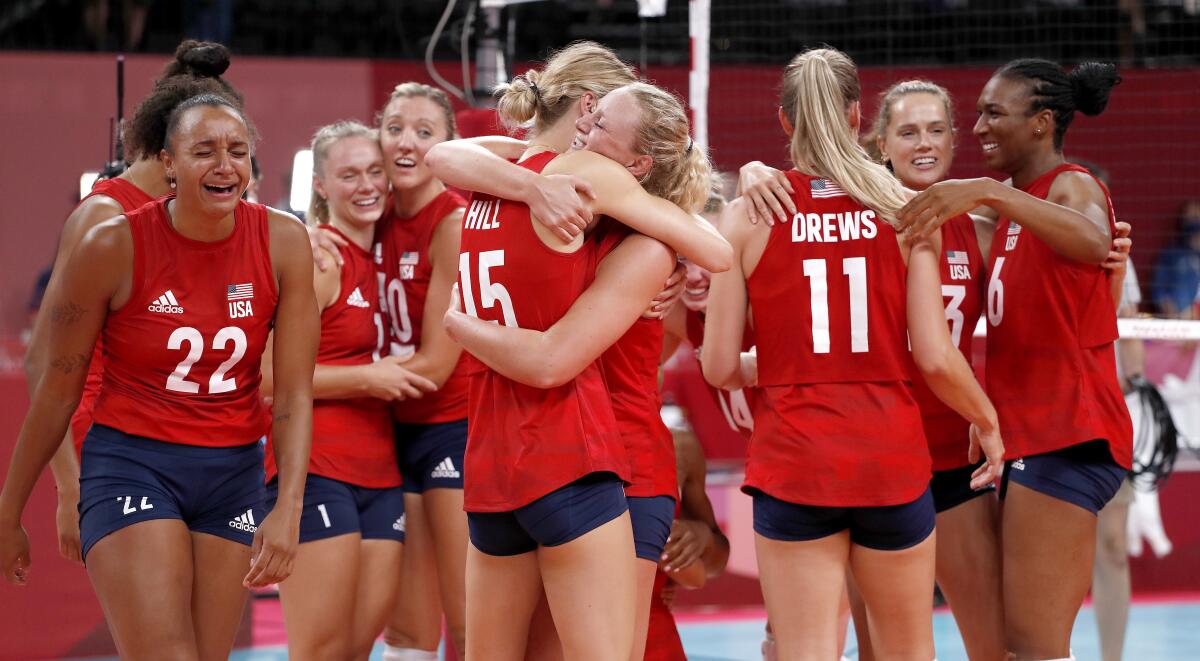
- Share via
TOKYO — There was a big hullabaloo in Hooper, Neb., several years ago when the Nebraska Department of Roads, citing the lack of a permit, removed the banner on Highway 275 honoring Jordan Larson as an Olympian.
After their hometown hero helped the U.S. women’s volleyball team make history Sunday, the locals will just have to do it right this time.
Get the permit and update the banner to identify her as Jordan Larson, Olympic champion.
The United States women’s basketball team continued its nearly 30-year-long Olympic winning streak, defeating Japan for the Tokyo Olympics gold medal.
The Americans are bringing home gold in the sport for the first time after routing previously unbeaten Brazil, 25-21, 25-20, 25-14, in the Tokyo Olympics to complete an unlikely journey that involved a spiritual guru and garage workouts while corresponding via Zoom.
Larson crouched in disbelief after scoring the winning point inside Ariake Arena, tears flowing to commemorate a breakthrough after she had been a part of teams that won a silver medal in the 2012 London Olympics and a bronze in the 2016 Rio de Janeiro Olympics.
“I don’t know if the words will come, honestly,” Larson said. “I’m still in a state of shock. I’ve cried more in the last 24 hours than I think I have in my career.”
There was also an extended outpouring of emotion for UCLA legend Karch Kiraly after winning what amounts to volleyball’s triple crown, adding a championship as coach to go with the golds he had won as a player with the men’s indoor team and on the beach.
U.S. women’s volleyball coach Karch Kiraly hopes to be the first to win a gold medal as an indoor player, beach player and a coach. Team plays Brazil on Sunday.
Kiraly said winning this tournament was more powerful than the golds he won because of the work and time it took to achieve it. He achieved immediate success as a player, winning in his 1984 debut.
The women had lost only one match in each of the last two Olympics — against teams they had defeated in the preliminary round — while failing to win gold.
“We didn’t come close and lose, come close and lose, come close and fall short,” Kiraly said, referring to his experiences as a player. “It makes it taste and feel much more special when you go through the hard times.”
Another UCLA luminary also galvanized the team for this breakthrough.
Sue Enquist, the former Bruins softball star and coach, was retained as a mental performance advisor after wowing players with her energy on a Zoom call. She went on to enhance the wobbly relationship between the first-time Olympians and a handful of veterans.
“We were functioning as a bunch of individuals,” Larson said, recalling the dysfunction. “I think we all had our own personal agendas and not that we were trying to be selfish, it was just that we didn’t know how to function as a team.”
It could also be hard to perform as individuals while stuck at home during the pandemic.
For months, the only kill Larson made was in her backyard near Malibu.
She turned a patch of grass into dirt while practicing her approach to jumping at the net as she prepared for a return to training.
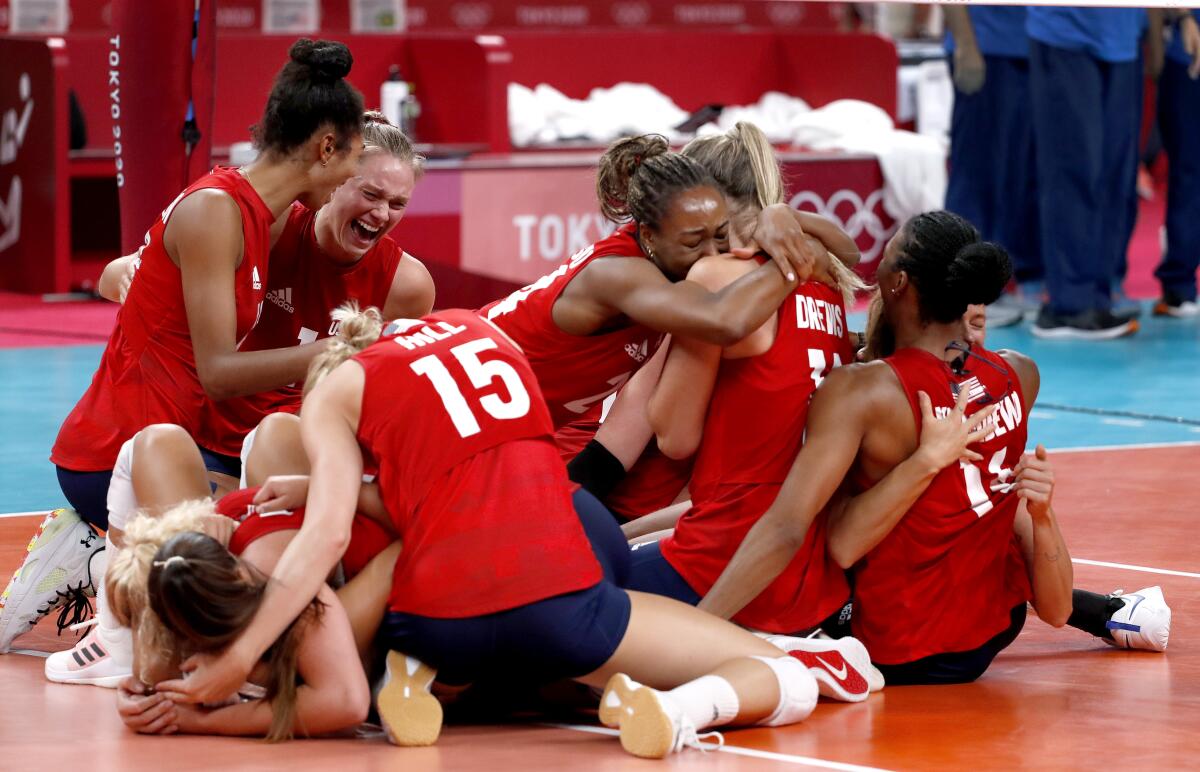
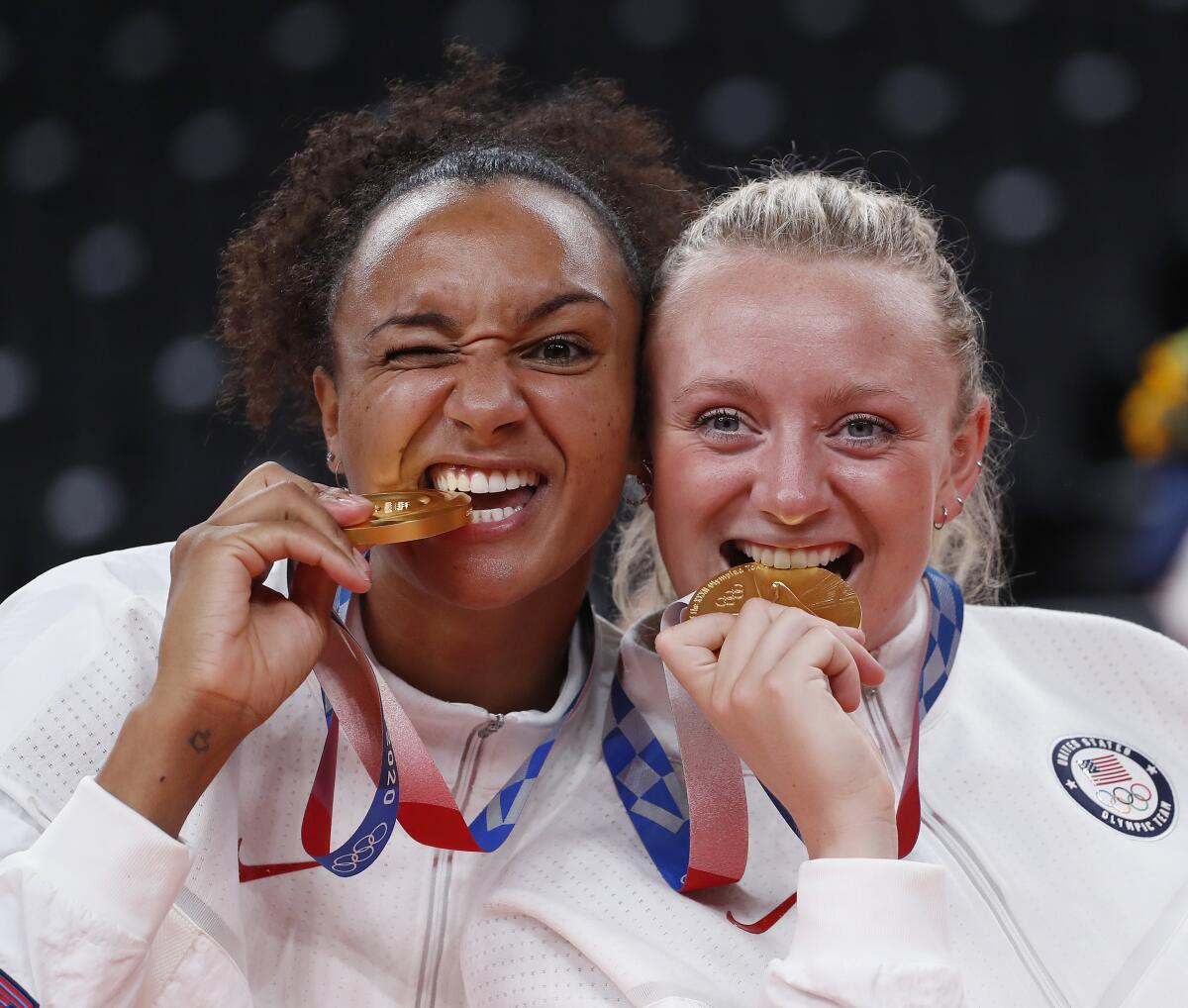
“My fiance’s like, ‘Seriously, there’s only one spot in the lawn?’” recalled Larson, who’s set to marry Pepperdine men’s volleyball coach David Hunt in a few weeks.
Middle blocker Foluke Akinradewo Gunderson trained while also caring for her baby, Kayode. Garage workouts were sandwiched between breastfeeding sessions.
Inspiration was everywhere. Before it departed, the team received a care package from the 1980 team that had been unable to compete in the Moscow Olympics because of the U.S. boycott.
The alumni team sent personalized bookmarks, journals and Japanese lanterns that players hung inside their suites in the Olympic village. The forebears’ biggest gift came decades earlier, when they became the first group of U.S. volleyball players to train year-round as part of their Olympic preparation.
After once failing to qualify for back-to-back Olympics, the Americans went on to win three silver medals and two bronzes. They had never won gold. Not until Sunday.
The Americans won the first four points, silencing Brazil’s small but boisterous cheering section, on the way to taking the first set. Brazil had rallied to win twice in this tournament after dropping the opening set, but there would be no comeback this time.
Players shed enough tears to fill an Olympic cauldron, starting with their circle of gratitude that has become a pre-match ritual. Setter Jordyn Poulter even choked up recalling what she had said, telling her teammates she was grateful just to be in their company. Larson said she was going to play for veteran outside hitter Kim Hill, who was headed for retirement.
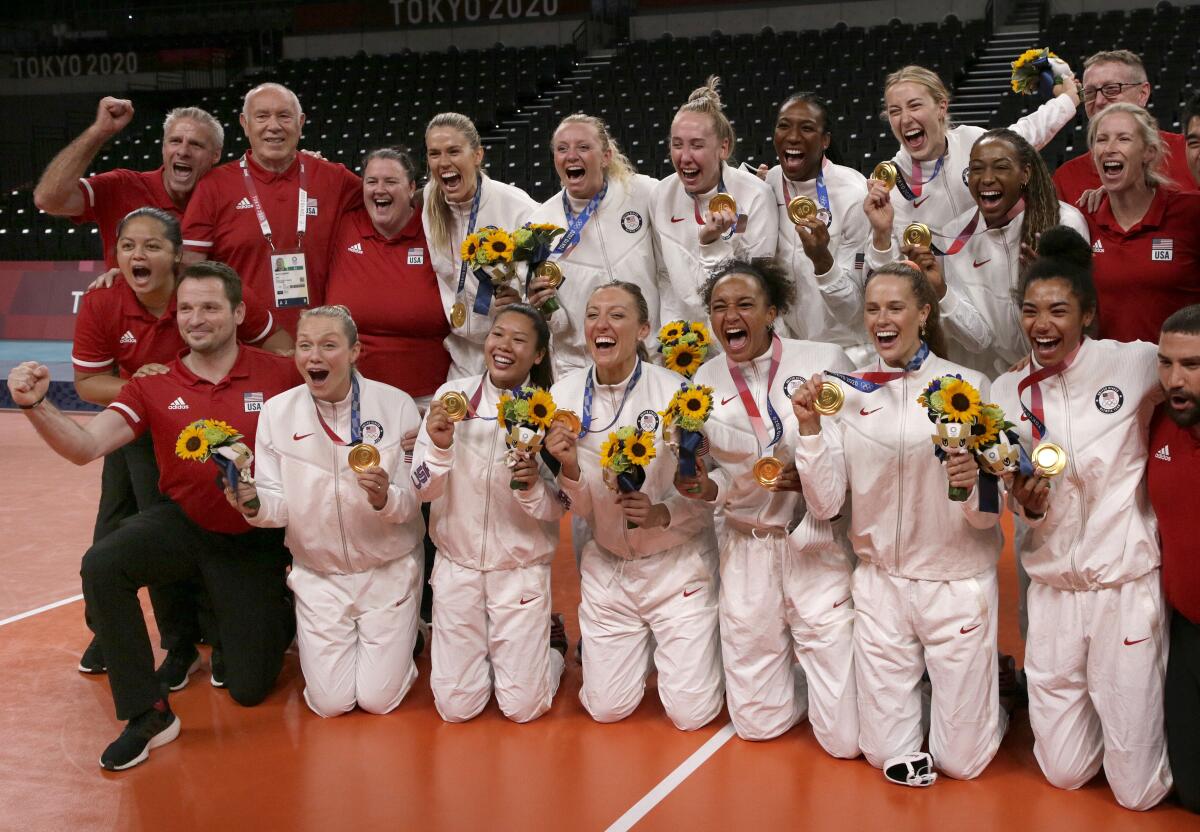
Realizing the likelihood of this also being her last Olympics, Larson wept intermittently in the day before the match. She girded herself for the possibility of not winning the gold medal after so much previous heartache.
“At the end of the day, I was going to be OK,” Larson said, a gold medal draped around her neck, “but this is pretty sweet.”
More to Read
Go beyond the scoreboard
Get the latest on L.A.'s teams in the daily Sports Report newsletter.
You may occasionally receive promotional content from the Los Angeles Times.

